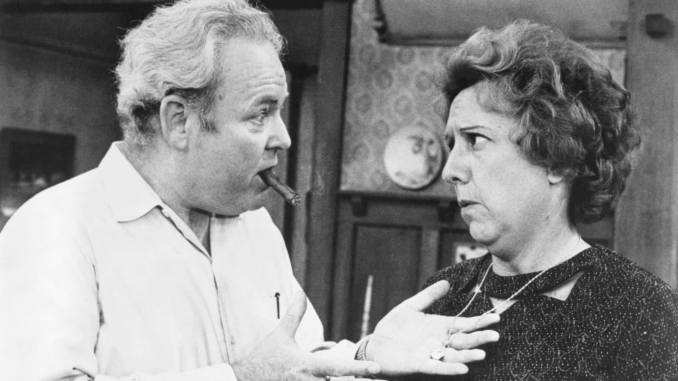
When you think of groundbreaking television, “All in the Family” undoubtedly stands out. This iconic sitcom, which aired from 1971 to 1979, not only entertained audiences but also tackled social issues that were often considered taboo. The Bunker family, with their unique dynamics and unforgettable personalities, played a pivotal role in shaping the landscape of American television. In this article, we’ll take a nostalgic look back at the cast of “All in the Family” and explore how they changed the face of sitcoms forever.
The Birth of All in the Family
A Revolutionary Concept
“All in the Family” was created by Norman Lear and was based on the British series “Till Death Us Do Part.” The show centered around the Bunker family, particularly the outspoken and often bigoted patriarch, Archie Bunker, played by Carroll O’Connor. The series was groundbreaking for its time, addressing issues like racism, feminism, and the Vietnam War with humor and honesty.
Cultural Impact
The show became a cultural phenomenon, earning numerous awards and accolades. It opened the door for more socially conscious programming in the years to come, making it a pivotal moment in television history.
Meet the Bunker Family
1. Carroll O’Connor as Archie Bunker
The Iconic Patriarch
Carroll O’Connor’s portrayal of Archie Bunker is one of the most memorable performances in television history. Archie was a working-class man with strong opinions, often reflecting the prejudices of his time. O’Connor’s ability to balance humor with serious social commentary made Archie a complex character.
Archie’s Legacy
Archie Bunker became a symbol of the struggles and contradictions of American society. His character challenged viewers to confront their own biases, making him a significant figure in television history.
2. Jean Stapleton as Edith Bunker
The Heart of the Family
Jean Stapleton played Edith Bunker, Archie’s loving yet naive wife. Edith was the moral compass of the family, often providing a counterbalance to Archie’s harsh views. Stapleton’s performance brought warmth and depth to the character, making her beloved by audiences.
Edith’s Influence
Edith’s character evolved throughout the series, showcasing her growth and empowerment. She became a voice for women’s rights, reflecting the changing societal norms of the 1970s.
3. Sally Struthers as Gloria Bunker
The Strong-Willed Daughter
Sally Struthers portrayed Gloria, the Bunkers’ daughter, who often found herself caught between her father’s outdated views and her own progressive beliefs. Gloria’s character represented the younger generation’s struggle for independence and equality.
Gloria’s Impact
Gloria’s character resonated with many viewers, especially women, as she navigated the challenges of feminism and personal identity. Struthers’ performance added a layer of relatability to the show.
4. Rob Reiner as Michael “Meathead” Stivic
The Liberal Son-in-Law
Rob Reiner played Michael Stivic, Gloria’s husband, who often clashed with Archie over political and social issues. Known affectionately as “Meathead,” Michael represented the counterculture movement of the 1960s and 70s.
Michael’s Role in the Family
Michael’s character provided a voice for progressive ideas, challenging Archie’s traditional views. Their debates became a central theme of the show, highlighting the generational divide in America.
The Show’s Groundbreaking Themes
Addressing Social Issues
“All in the Family” was not afraid to tackle controversial topics. From racism and sexism to the Vietnam War, the show addressed issues that were often swept under the rug in mainstream media.
Humor as a Tool for Change
The series used humor to engage viewers in serious discussions. By presenting sensitive topics in a comedic light, “All in the Family” encouraged audiences to reflect on their own beliefs and attitudes.
The Legacy of All in the Family
Influencing Future Sitcoms
The success of “All in the Family” paved the way for a new era of sitcoms that addressed social issues. Shows like “The Jeffersons,” “Ma
